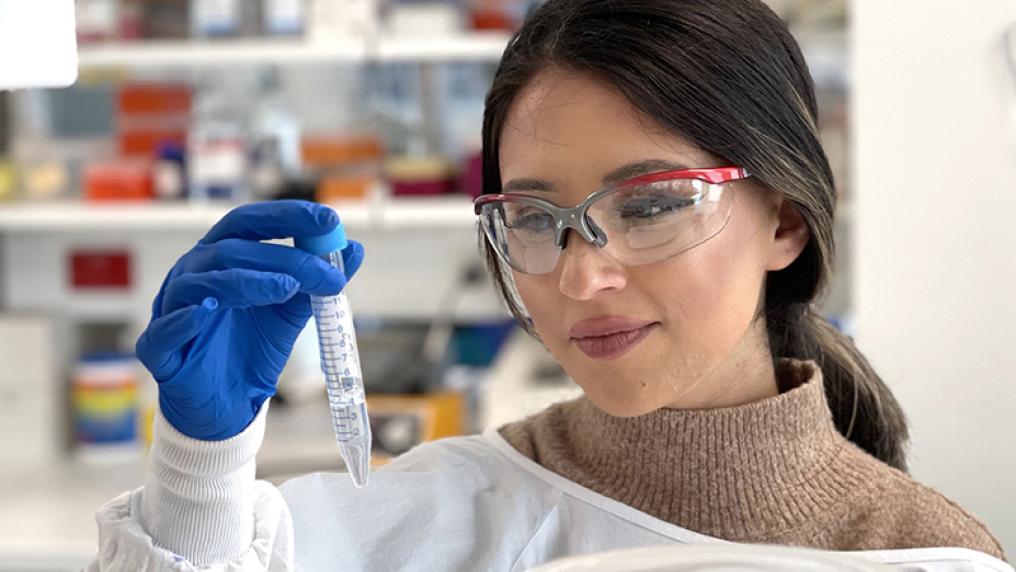Connecting with the gut & brain to fight meth addiction

Amanda Habib is working on research that links the gut, the brain and methamphetamine use and has the potential to change the lives of millions of people around the world. Ms Habib is completing a PhD in Neuroscience at Victoria University as part of a Doctor of Philosophy: medical and biological sciences.
In recent years, several studies have been done to identify and understand the physical and chemical connections between the gut and brain and how the health of one can affect the other.
Although there is more work to be done, the bio-directional communication system is recognised as a powerful system with strong connections between gut disorders and psychological disorders such as anxiety and depression.
Ms Habib is investigating whether gut bacteria can be manipulated to help prevent or treat psychological disorders and, particularly, what this may mean for users of methamphetamine, one of the world’s most addictive substances.
“It is widely acknowledged by scientists that abstinence from long-term METH abuse leads to severe anxiety and depression, which cannot be treated via the use of selective serotonin reuptake inhibitors, and the current available treatment option for this disorder is via rehabilitation,” Ms Habib says.
Meth can alter brain structure and function leading to brain damage, and can also lead to severe gut complications such as bowel ischemia, inflammation, constipation and leaky gut.
The psychological disorders brought about by meth use and addiction can be fatal with about 40 per cent of the 35 million users globally suffering from symptoms of paranoia, depression and anxiety that are so intolerable they lead to suicide.
“This is, of course, a major burden on the healthcare system and the economy, to say nothing of the effects on families,” says Ms Habib.
Ms Habib has been investigating the effect of chronic meth exposure and withdrawal on the gut-brain axis and its correlation with such disorders as depression.
"We administered chronic doses of meth to female mice for two weeks, followed by withdrawal to produce symptoms of dependence and depression.
“Ex vivo studies of the mice brain and gut have been conducted and this will assist in the future development of a novel therapeutic target that may reverse meth-induced depression,” she says.
National Science Week
National Science Week 2021 continues until 22 August. It is Australia’s annual celebration of science and technology - held every August.



